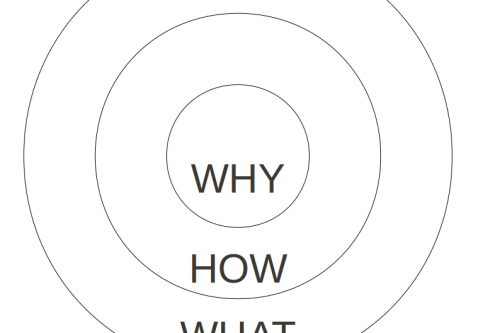You already decided to create and publish your online course. You know it’s going to take work. However, you realize it’s worth the effort as your course has the real capacity to contribute to the progress of others.
The knowledge and skills you have acquired through your education and professional life have brought you valuable tools to reach your goals. When you share this knowledge, you are giving others the opportunity to be successful as well.
Publishing your online course also allows you to make extra money. Knowledge marketplaces, such as Teachlr, gives you the chance to sell your content to people throughout all Latin America. You only need your computer, an Internet connection and that’s it.
The ways to make money with your knowledge are also diversifying. For example, we have discovered the need that organizations have to deliver professional training with their own online school. Consequently, they’re going to need high-quality material which gives an interesting opportunity for experts like you.
Creating your own online course is likewise the perfect chance to reorganize, review and systemize all your knowledge. It allows you to find out what areas need deeper research, while strengthening the topics you already master.
Lastly, an online course enables you to keep yourself up-to-date with the latest technology used in education. If you want to learn about new teaching methods and witness their advantages, uploading your content in a platform like Teachlr, allows you to do precisely that.
So, you might understand well all these rational and logical reasons to start creating your online course right this second. However, you don’t act. Days, weeks and months pass by and you still haven’t started to organize your content even. There’s an invisible, yet powerful force that wins the battle. It’s not laziness, or lack of time. Yes, you might have a very tight schedule, but eventually it clears out and still…you don’t find the will to start working on it. WHY???
Dear aspiring instructor, you have been procrastinating.
What’s procrastination and why does it happen?
To solve any problem we might be having, we first need to know what it is and understand the causes that generate it.
Procrastination is a behavior, which makes us employ dilatory tactics to postpone important tasks we need to complete. It’s a mechanism that emerges from an emotions mismanagement when we want to flee the anxiety that such tasks cause. When we procrastinate, we seek to eliminate these feelings from our immediate experience and in consequence, we prefer to give in to the distractions that provide instant gratification and pleasure.
Procrastination impedes the unification of intention and action: We are well aware that we need to work, but we fail to do so despite knowing that ultimately this behavior will hurt us. Not achieving the completion of a task in time, generates guilt and stress.
Most frustratingly, this behavior isn’t optional.
Procrastination is especially annoying, because it is a recurrent conduct. Chronic procrastinators just think in the present, disregarding the past, as well as the future. We fail to reflect and learn about the bad times procrastination caused, which increases the chances of repeating this conduct indefinitely. Likewise, we tend to consider that our “future me” will be better equipped to handle the stress and solve the problem, which gives us permission to keep distracting ourselves and having unmerited fun.
Why is procrastination a problem that deserves attention?
Because of its negative consequences in our lives.
We start browsing the wedding pictures of the cousin of a friend from a friend on Facebook, watch that cute video of a puppy and a baby for the tenth time, and decide it’s time to our your disastrous inbox… until we take a look at the time and start panicking. We have wasted three hours doing absolutely nothing useful! Three hours that could have been productive.
Postponing tasks and doing them hurriedly, generates stress and anxiety. Having these experiences often, besides making us waste time and feeling lousy about ourselves, hinders our lifegoals. Putting off projects that potentially may draw us nearer to our dreams, will alienate us from implementing the positive changes our lives need to get better and be meaningful.
In the case of the publication of an online course, procrastinating impedes us to make extra money, reinforce our skills and primarily, to share our knowledge with people who might be needing it. In other words, besides wasting an important opportunity for our professional and personal development, procrastination keeps us away from making a positive contribution to society.
Although procrastination is not optional, it is manageable. And once we achieve to dominate it, the change is incredible. Tim Urban, creator of the blog Wait But Why and chronic procrastinator, expresses it very well:
Because defeating procrastination is the same thing as gaining control over your own life. So much of what makes people happy or unhappy—their level of fulfillment and satisfaction, their self-esteem, the regrets they carry with them, the amount of free time they have to dedicate to their relationships—is severely affected by procrastination. So it’s worthy of being taken dead seriously, and the time to start improving is now.
Show yourself you can do it. Change the perception you have of yourself.
How to beat procrastination
Start by forgiving yourself. Once you accept your behavior is not the most adequate and needs improvement, you will be able to start all over again without negative feelings like guilt and anxiety that hinder your progress.
Afterwards, block all distractions. Think about what makes you divert. Is it your phone? Facebook? Talking to your friends every three seconds? Get away from all of it until you start the task.
A very important step is the definition of goals. Tim suggests that first you should prioritize the most important, urgent and meaningful goal. Then divide this goal into smaller tasks, which must be actionable and realistic in order to get closer to the final objective.
An important discovery by psychologist Timothy Pychyl, is that you don’t need to have certain mood to start doing a task. Your emotions shouldn’t necessarily coincide with the task at hand. Just sit down and begin. Act.
Tim agrees with Pychyl. After you have managed to finish certain sub-tasks, you will start feeling great with yourself, which will motivate you to keep working. Pleasure is addictive.
Another tactic is visualization. Take a moment to imagine the successful outcome of your course. Visualize it already published on Teachlr, with thousands of students, discussions and great reviews.
Lastly, remember the reasons that made you create your course in the first place. Write them down and post them on your bathroom mirror or fridge if you have to. This works as an effective reminder of the meaning and final goal of your work.
Nobody is safe from procrastination. And well, I have a confession to make: Ironically, I was also a victim of procrastination while writing this article. You have to recognize the problem, act and stick with it.
If you need additional help to start creating your course, you can download our predetermined work plan for instructors, where we give you a useful outline with the tasks you must complete. You will also find a space to organize the time frames of every step. This document will allow you to write everything down and see it closer to reality. To get the plan, go to this link and then make a copy.
References:
Jaffe, E.: Why Wait? The Science Behind Procrastination?, The Observer, http://www.psychologicalscience.org/index.php/publications/observer/2013/april-13/why-wait-the-science-behind-procrastination.html
Swanson, A. (2016): The real reasons you procrastinate — and how to stop, The Washington Post, https://www.washingtonpost.com/news/wonk/wp/2016/04/27/why-you-cant-help-read-this-article-about-procrastination-instead-of-doing-your-job/?postshare=2791461974762068&tid=ss_tw
Urban, T. How to Beat Procrastination, Wait But Why, http://waitbutwhy.com/2013/11/how-to-beat-procrastination.html
Urban, T.: Why Procrastinators Procrastinate?, Wait But Why, http://waitbutwhy.com/2013/10/why-procrastinators-procrastinate.html




